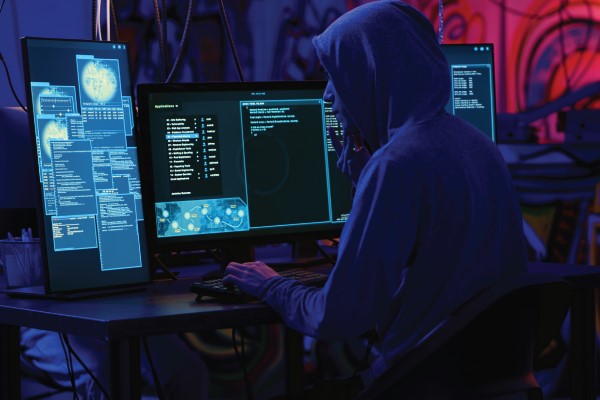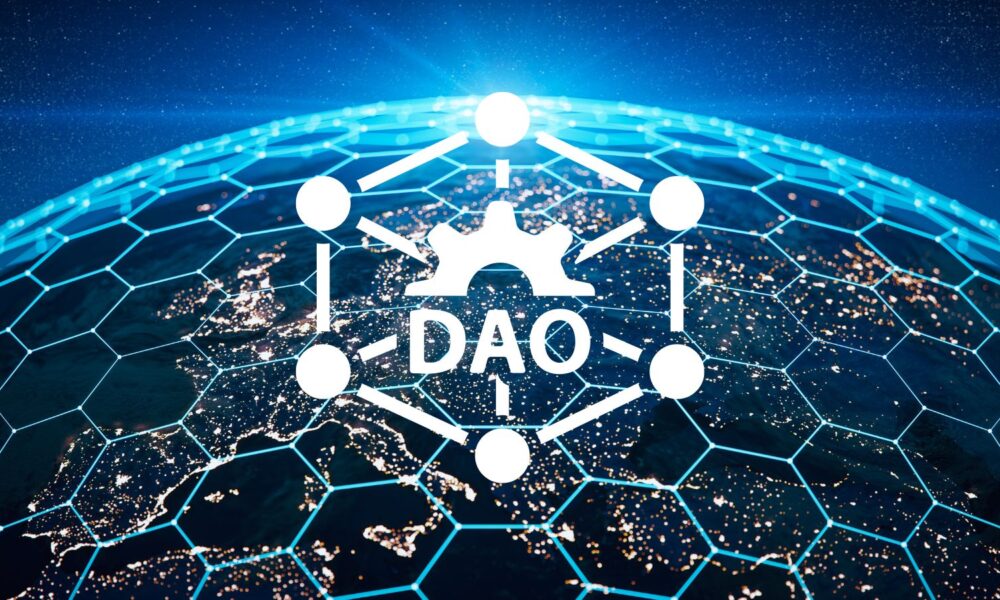What is a DAO (Decentralized Autonomous Organization)?
A Decentralized Autonomous Organization (DAO) is a digital organization governed by its members through blockchain technology. DAOs are autonomous because they operate without a central authority, relying instead on smart contracts to enforce decisions and actions. These organizations are designed to be transparent, secure, and democratic, offering a novel way of organizing business and community efforts.
In a DAO, decisions are made collectively by token holders or community members, ensuring that no single entity has absolute control. This decentralization allows for the creation of more inclusive, resilient, and community-driven projects—key principles in the Web3 ecosystem.
Importance of DAOs in Web3
DAOs are at the heart of the Web3 revolution. Web3, the next phase of the internet, prioritizes decentralization, privacy, and user ownership. In Web3, DAOs represent a shift from traditional, centralized organizational structures to ones that are distributed, empowering communities and users directly. With DAOs, Web3 startups can avoid the pitfalls of hierarchical control and enable global collaboration without intermediaries.
Purpose of the Article
This article aims to explain the fundamental role of DAOs in Web3 startups, showcasing their importance in governance, funding, and decision-making processes. We’ll dive into how DAOs function, the types of DAOs in Web3, and explore real-world examples of DAOs making an impact.
The Fundamentals of DAOs

Core Features of DAOs
DAOs are defined by their three core characteristics: decentralization, autonomy, and transparency.
- Decentralization: DAOs operate without a central leader or single point of control. Decisions are made collectively by the community, and authority is distributed among token holders or participants.
- Autonomy: The organization functions based on pre-coded rules in smart contracts, eliminating the need for intermediaries or human intervention in daily operations.
- Transparency and Immutability: Every transaction and decision made within a DAO is recorded on a blockchain, which is open and accessible for all to see. This ensures trust among participants as the system’s operations are visible and immutable.
How DAOs Operate
DAOs typically operate on blockchain platforms like Ethereum or Binance Smart Chain. The process begins with the creation of a smart contract, which governs the operations and decision-making protocols. Members of a DAO hold governance tokens, which grant them voting power. This decentralized voting system enables participants to propose changes, vote on initiatives, and make key decisions about the organization.
Proposals are submitted to the DAO community, and if they meet certain criteria, they are put to a vote. Once a proposal is approved, the smart contract automatically executes the agreed-upon actions, ensuring the transparency and security of all decisions.
DAO Governance and Voting
- Voting Mechanisms: DAOs use different voting mechanisms, such as token-weighted voting or quadratic voting, to ensure that governance is distributed fairly. Token-weighted voting gives more power to those holding more tokens, while quadratic voting aims to give smaller holders more influence.
- Proposals and Decision-Making: Members can submit proposals for changes to the DAO, such as altering governance structures, funding new projects, or changing operational rules. Voting typically takes place over a specified period, ensuring broad participation.
- Incentives for Participation: DAOs often incentivize participation through tokens or rewards for active engagement in governance. This encourages users to contribute to decision-making and helps maintain a thriving community.
The Role of DAOs in Web3 Startups
Decentralized Governance Models in Web3 Startups
Web3 startups leverage DAOs to replace traditional top-down management with decentralized decision-making. Instead of having a CEO or board of directors, a DAO allows all members to participate in governance. This fosters a more inclusive environment where decisions are made by the community, creating a more democratic organizational structure.
By using a DAO, Web3 startups can ensure that decisions are made transparently, and all stakeholders have a voice in the direction of the project. This is particularly appealing in industries where trust and transparency are crucial, such as finance and social platforms.
Funding and Resource Allocation in DAOs
DAOs provide Web3 startups with a unique approach to fundraising. Through token sales or initial DAO offerings (IDOs), startups can raise capital directly from their community rather than relying on venture capital or traditional funding methods. This method allows for a more decentralized allocation of resources and empowers the community to invest in the project’s success.
The DAO treasury is typically managed collectively, with proposals and voting mechanisms determining how funds are spent or allocated. This ensures that all decisions regarding resource allocation are made transparently and democratically.
DAO-Driven Innovation
DAOs are especially powerful in driving innovation. Because decision-making is decentralized, Web3 startups can quickly adapt to new ideas and technologies. DAOs enable developers, investors, and users to collaboratively work on product improvements, new features, and strategies.
For example, a Web3 startup can launch a DAO-driven hackathon where the community proposes and votes on innovative solutions to improve the product. This process fosters rapid development and keeps the startup aligned with the community’s needs.
Building Community Engagement through DAOs
Community engagement is one of the key strengths of DAOs. Unlike traditional companies, which often prioritize top-down communication, DAOs encourage active participation from every member. By holding governance tokens, community members have a stake in the project’s success and are motivated to participate in discussions, propose changes, and vote on key decisions.
The collaborative nature of DAOs fosters a sense of ownership and responsibility among participants, increasing loyalty and long-term engagement in the startup’s success.
Types of DAOs in Web3 Startups
Protocol DAOs
Protocol DAOs govern blockchain protocols like Ethereum or MakerDAO. These DAOs oversee changes to the protocol, such as upgrading features, changing governance rules, or adjusting economic policies. Protocol DAOs allow for decentralized control over the fundamental infrastructure of Web3, ensuring that updates are driven by community consensus.
Investment DAOs
Investment DAOs allow members to pool capital and collectively make investment decisions. These DAOs focus on funding startups, projects, or assets, and the profits are distributed according to the DAO’s governance rules. Investment DAOs such as MetaCartel Ventures have successfully created decentralized venture funds that prioritize Web3 innovation.
Social DAOs
Social DAOs focus on building and managing decentralized communities around shared interests, values, or social causes. These DAOs are common in the Web3 space, with examples such as Friends With Benefits or BanklessDAO, which enable members to participate in events, discussions, and decision-making that drive the social ecosystem forward.
DAO-Based Startups
Some startups are entirely DAO-based, meaning the organization is fully governed by the community. For instance, Aragon and Gitcoin are decentralized organizations built around open-source projects, where every participant has a say in how the project evolves.
Real-World Examples of DAOs in Action
MakerDAO
MakerDAO is one of the most successful DAOs in Web3, governing the Maker Protocol and the Dai stablecoin. MakerDAO uses decentralized governance to manage the issuance of Dai, which is pegged to the US dollar. Token holders vote on decisions like collateral types, risk management, and interest rates, giving them control over the protocol’s monetary policy.
Gitcoin DAO
Gitcoin DAO is a decentralized platform focused on funding open-source development. It operates on a community-driven model, with token holders voting on funding allocations for projects. Gitcoin incentivizes developers to work on open-source projects by offering grants and bounties, democratizing the funding process.
Uniswap DAO
The Uniswap DAO governs the Uniswap Protocol, a leading decentralized exchange (DEX). Uniswap’s governance token, UNI, allows token holders to vote on protocol upgrades, token listings, and other significant changes. This decentralized decision-making process ensures that the protocol evolves based on community consensus rather than a central authority.
Aave DAO
Aave DAO governs the Aave lending platform, where users can borrow and lend cryptocurrencies. Aave token holders participate in governance, making decisions about protocol upgrades, treasury management, and the addition of new assets to the platform. This decentralized governance allows Aave to remain adaptable and community-driven.
The Benefits of DAOs for Web3 Startups
Transparency and Trust
DAOs ensure that every decision and transaction is recorded on the blockchain, making them fully transparent. This fosters trust within the community as participants can easily verify actions and decisions.
Enhanced Security and Autonomy
By utilizing smart contracts, DAOs ensure that all decisions are executed automatically, reducing the risk of human error or manipulation. The absence of a central authority also means there is no single point of failure, making DAOs more resilient and secure.
Scalability and Global Reach
DAOs can scale globally, enabling anyone with internet access to participate in decision-making, regardless of their geographical location. This global reach helps Web3 startups tap into diverse perspectives and expertise.
Increased Engagement and Community Ownership
DAOs foster a sense of ownership among members, as they directly influence the success and direction of the project. This community ownership model ensures long-term engagement and loyalty.
Challenges and Risks Associated with DAOs
Legal and Regulatory Challenges
DAOs face legal hurdles as traditional regulatory frameworks do not fully address decentralized governance. Issues like jurisdiction, liability, and compliance with securities laws are ongoing concerns.
Security Concerns
Smart contracts, while secure, are not immune to bugs and vulnerabilities. High-profile DAO hacks, such as the infamous DAO hack in 2016, highlighted the risks associated with decentralized organizations.
Governance Challenges
DAOs can face governance issues, such as voter apathy or centralization of power if token distribution is uneven. Ensuring fair and active participation in decision-making is a critical challenge.
Technical Barriers
Setting up and managing a DAO requires technical expertise in blockchain and smart contracts. While the tools are improving, many DAOs still face barriers related to usability and accessibility.
The Future of DAOs in Web3 Startups
DAOs as a New Standard for Startup Governance
DAOs are likely to become a new standard for governance in Web3 startups, offering decentralized control and community-driven decision-making. The increased focus on transparency, security, and inclusivity makes DAOs an attractive option for businesses in the digital age.
Evolution of DAO Tools and Infrastructure
With ongoing improvements in blockchain technology, DAOs will become more user-friendly, scalable, and secure. New platforms will emerge to streamline the creation and management of DAOs, enabling more businesses to adopt this decentralized model.
Integration with Traditional Industries
While DAOs are currently popular in the Web3 space, their potential to revolutionize traditional industries such as finance, supply chains, and healthcare is significant. Hybrid models integrating both decentralized and traditional structures may emerge.
Global Impact of DAOs
DAOs have the potential to transform industries globally, creating a more decentralized, equitable system for organizing and managing resources. They can empower individuals from all walks of life to participate in decision-making processes that affect their lives.
Conclusion
DAOs are transforming the way Web3 startups operate, offering a more decentralized, transparent, and community-driven approach to governance. As Web3 continues to grow, DAOs will play an increasingly vital role in shaping the future of digital organizations. By providing an open and inclusive platform for decision-making, DAOs enable innovation and empower communities to take charge of their futures.
Web3 startups that embrace DAOs stand to benefit from increased trust, scalability, and global engagement, positioning themselves as leaders in the decentralized revolution.

